Do we really need to be concerned with Self-Improvement?
Never stop learning, they say. Gee. Isn’t there an appropriate age to get off the self-improvement conveyor belt? I mean, really.
After all, we’ve accumulated decades of experience, haven’t we? Just the other day I saw another title urging “life-long learning.” Gosh, by our sixties, seventies, eighties and nineties, maybe we’ve learned enough. We’re tired.
I’m tempted to say self improvement is for the young and ambitious. After all, if there’s a better me inside, surely I would have found him by now!
I think I’ll just opt out of that self-improvement race. Are you with me?
Then I’m reminded that Alvin Toffler (Future Shock) said: “The illiterates of the 21st century will not be those who cannot read and write, but those who cannot learn, unlearn, and relearn.” Uh oh, that pushes my buttons. Maybe my age doesn’t exempt me from the need for continuous learning.
What Got Us Here Won’t Take Us There
Just for now, let’s assume that Toffler really knew what he was talking about. Let’s dissect that one simple, yet deep proclamation.
We’ll take a thought journey down Toffler Lane. Maybe we’ll uncover some truths behind learning, unlearning and relearning.
At first glance, it seems as if he’s saying that all my experiences and accumulated knowledge is just so much fluff. On the other hand he seems to be saying that the habit of learning was a good one. It has guided us into our mature years.
In my early years I was somewhat of a personal development nut. Several of my jobs had me on the road a lot. I listened to thousands of hours of cassette tapes about self-improvement, and habits of the successful.
Zig Ziggler, Jim Rhone, Napoleon Hill, Wayne Dyer, Earl Nightingale and many other gurus bolstered my confidence and helped me deal with life and its challenges. I learned a lot.
But I also learned a lot from my life experiences. We all have. But maybe Toffler is saying that our learning and the wisdom derived from life’s experiences are just not enough to brighten our tomorrows.
The Complex and Rapidly Changing World Ahead
It’s evident that he means that much of what we’ve learned is becoming outdated and irrelevant. Will we find nothing useful when we reach into our bag of tricks to solve a problem or choose a path?
So far, I think we’ve pretty much held our own. Yet, many things have already changed and have made us wary. And now, the technological advances that Artificial Intelligence alone will trigger could be mind blowing. Increasing the rate of change far beyond its prior speeds.
Think about the following:
- Automation: Within various industries (e.g. customer service) automation has often frustrate us, longing for the good old days of human touch. Some companies now brag about offering a real human to talk with.
- The digital world: Dealing with banking, health care, communications and shopping have bee difficult for the less tech-savvy and this is expected to accelerate quickly. Navigating complex websites, apps and other online systems may get even harder.
- Our cars: They’re now information centers. We might consider them “confusion centers” wit underused or misused benefits. When we go to self driving cars, will we be safe? Or might they present yet another loss of independence and autonomy?
- Cyber security: It already has many worried. The online world is full of scammers and other that prey on the older generation with schemes to scare us, fool us, and steal from us.
- The near future: Soon we’ll have significantly more medical advancements with robotic surgeries, gene therapies, DNA restructuring and others that, while hopeful and exciting, can also be very intimidating and possibly unethical.
- Smart home technology: While it can be very helpful – assuming we learn to use it, it can see very intrusive. Many already resist these advances and as they proliferate, it could further isolate us.
I’m happy that many of you have already jumped right in and learned to benefit from these and many more advances. However, many of us still drag our feet while we marvel at the ease with which our children and grandchildren take to technology. Personally I’m making progress – maybe not eagerly yet, but methodically. I see it as a mental agility exercise as well!
If you haven’t done so, consider a fitness tracker watch, ring or bracelet. Learn more uses for your smartphone. Back in the 2000’s and twenty-teens, my mother was wheelchair bound in her final years and couldn’t drive. We taught her how to join online health, weight loss and friendship groups and she relished the many hours she spent making new “computer friends” in her final years.
I anticipate breakthroughs in the treatment of chronic pains. If that ends up requiring new physical therapies I’ll want to know about them. If it’s new medicines I’ll want to take advantage. Being open to these might just require some unlearning and relearning.
It’s a growth mindset and a skill-set that I believe will serve us well. And even propel us deep into our Golden Years. But, is that what you want? It might take some effort.
They Promise Us an Extended Lifespan
What kind of life suits you? Are you happy with your current social life, income, and ability to navigate all the complexities life offers?
Studies say that most of us are happy. I think it’s important to understand what, exactly, are the reasons for this happiness and satisfaction. (More on those in a minute.) What if rapid changes require far more reliance on new technologies?
The costs of new tech can be prohibitive for some. We may need to help others. But I can see a time when nearly all of us will have almost unlimited access.
What if we were to ignore technology? Ask yourself how would you feel about that decision in 10, 20, 30 years when today’s world is long gone? Especially if our longer lifespan is a healthy one. History tells us we’ll all still want what we’ve always wanted. Let’s prepare.
A Lifestyle for the Years Ahead
Now let’s look at what is vital to us all besides friends, family, and freedom. We’ll go beyond the obvious and hone in on what we could miss if we don’t stay abreast.
- A confident approach to life: This is a requisite for a happy, engaged, and fulfilling life. Yet, if our self-image keeps taking hits from technological advancements that befuddle us we’ll soon feel inferior. And we could succumb to ageism because of those inabilities. Even engaging with others in meaningful ways could be lost.
- Maintaining our independence: This is a huge concern for most of us as we get closer and closer to “old age.” The near future may provide new ways to combat chronic illnesses, mobility issues, and cognitive deficiencies. Will we be in line for these advancements? Will we match the criteria that might be demanded of us?
- Financial means: Longer lives means more resources and better financial planning. Will we need to augment our incomes? Will the new future provide ways to do this? I don’t want to be stuck holding on to past methods that simply may not work anymore.
- Health and physical strength: This could be the most important benefit to stay abreast of. A long lifespan must also include a long health-span. And keeping abreast of technological and medical advances and gadgets will be vital. Staying healthy now will be our ticket to new paths to better health and well-being in the future.
As I mentioned earlier, this is a thought journey. Feel free to take your own thought journey. Now, I want to circle back to Toffler’s claim that learning is no longer enough. We must be able to unlearn and relearn as well.
I’m starting to see how doable and beneficial his admonition is. And I’m thinking it’s not something we’ll have to wait for. It’s a lifestyle that will benefit us immediately.
The Benefits of Learning, Unlearning, and Relearning
At first, I was a bit put off by saying I might be illiterate. But that’s probably a bit of poetic license in order to drum home the point I outlined earlier: What got us here, won’t take us there.
I think Toffler is saying that “learning” built our past life. It’s our memories, our experience, our accumulated wisdom to date. In order to fully embrace the present, we must unlearn. In other words, live with the “mindful” awareness that many of our current ways may no longer be serving us.
I can’t yet see how this journey will play out. But he’s offered us a blueprint. Here’s my breakdown in a nutshell:
- Learn = Our past: Examine what we knew to see if it still serves us.
- Unlearn = Our present: Be flexible enough to abandon outdated beliefs and practices.
- Relearn = Our future: Learn all over again using new information, technology, creative actions, and forward thinking teachers.
By saying that relearning is our future I’m not suggesting we can wait. Futures are built, brick by brick in all our todays. I’m also suggesting that embracing technology (AI included) is the “relearning” that will make our lives richer and worth living.
It’s the new literacy. I just don’t see how it can be ignored. Jumping on board is the only way to stay abreast and thrive in the years ahead. No one really knows our individual lifespans. But, to me, it only makes sense to assume we could have many years left.
I don’t want to squander those years. There are friends to be made and many sites to see on this glorious globe of ours. And a ton of discoveries to entertain us.
Start by Letting Go
Letting go of old worn-out habits and conclusions and learning and implementing new ones is a small price to pay. And if I think about it, Toffler’s method isn’t so much a price to be paid but an exciting journey into what could turn out to be the promised land.
Change really doesn’t have to be scary. There are plenty of resources available to learn and stay abreast of technology. There are online classes, books to read, social programs, interactive learning at senior centers and university extension courses.
Why not take classes and challenge your friends or spouse to go along with you. Engage in technology with your children and grandchildren. They’ll indulge you. They’ll likely even be proud of you. The new world that’s already here can offer everything we’ve always wanted with the right approach and continuous involvement.
Learn. Unlearn. Relearn. Sounds fun. What do YOU want to let go of? What do you want to learn next?
Let me know in the comments!










